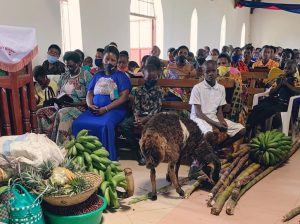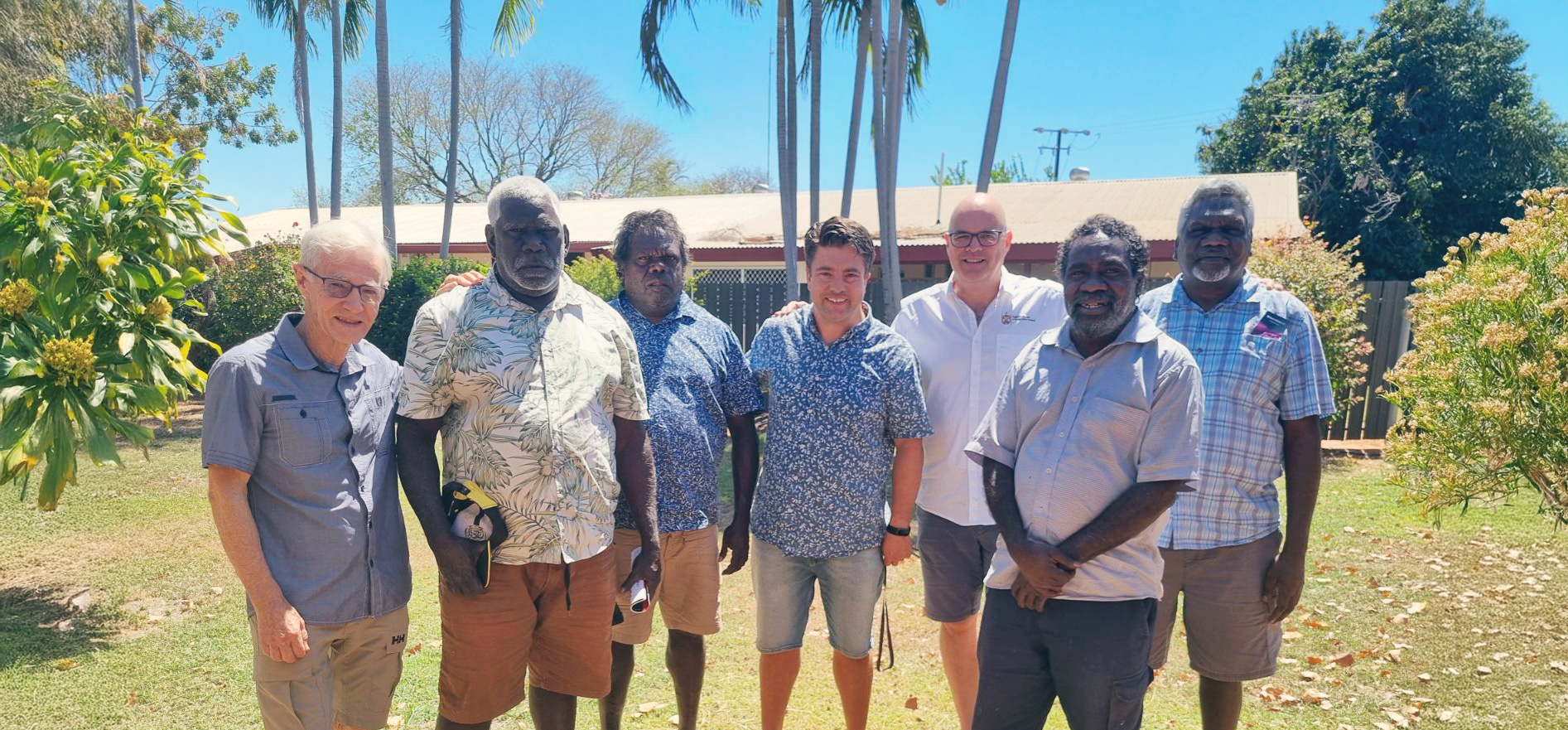Expounding generosity
CMS missionaries Andrew and Margie Newman teach at a Bible college in Uganda. Here, they share how the ‘reckless’ generosity of their students has unlocked rich new meaning to a word they thought they understood.
“Our Ugandan friends have a profound trust in a God who provides”
We should have known that people understand certain words differently. We once left a heavily pregnant Ugandan friend to walk home up a steep hill after we had offered a lift and she replied, “it’s ok.” We later learned what sounded like “No thanks,” to two Aussies, meant “yes please,” to a Runyankore-Rukiga speaker (the local language).
But when the concept of ‘generosity’ came up, we had a bit of a crisis on our hands.
Reconsidering generosity
We thought we understood financial generosity: the confidential, strategic stretching of the budget; digging deep. Our concept is shaped by the Scriptures and Christ himself. For example, from 2 Corinthians 8:9, generosity is the limitless, gracious, giving of self.
At a Bible college staff meeting we were discussing the progress of fundraising for the Principal’s retirement farewell. The weekly chapel services were yielding ten times the normal offertory! Our 55 students were doing an amazing job. Although Margie and I felt our personal budget for the fundraising was already over-stretched, we learned that our Ugandan colleagues and students see generosity very differently.
What’s going on?
To be honest, the writing was on the wall the day before. That morning, in the College office, we’d attempted to quietly give five times the required staff contribution, only to have the admin person broadcast the amount to other staff and students in the room. Then that afternoon, the Thanksgiving chapel service (a special fundraiser), was followed by an auction.
One student, a widow, had offered to sponsor this fundraiser, and together with other students brought some small items like soft drink, cakes and lollipops to be auctioned at the end of the service. Some guests from her church also attended, but they brought a goat and chickens to be auctioned off.
We were incredulous. We said to a couple of college staff members, “How can these people bring a goat and chickens to be auctioned at a college for the Principal’s farewell, with PA gear to purchase, and College mission costs still to come?”
They replied, “So you and Mama Margie will buy the goat?” We had brought our weekly tithe plus a bit (for generosity’s sake) for the auction, but not the 200,000+ shs. that a goat would attract![1] We chuckled courteously at their suggestion.
The auction began. Chickens sell at the markets for about 25,000 shs. But the first chicken to be put up at this auction started at a ridiculous price so we waited, then topped up a guest’s bid by 5,000 shs. note. Quickly, he added 5,000 shs. and the congregation erupted: together, we’d brought the price of the chicken to 200,000 shs.! They loved it. We felt included, but also exposed and stereotyped. To us, this all seemed irresponsible.

A Ugandan thanksgiving service with goods to be auctioned off.
Reckless generosity
We struggle with this pressure! Why the budget-busting prices? Why do all these left hands know exactly what the right hands are doing (Matthew 6:3)? We’ve read African Friends and Money Matters, which describes an African generosity that appears reckless to Westerners.[2] But we now realised we hadn’t taken it seriously enough.
Fast-forward to the staff meeting, where we recounted the chapel Thanksgiving service, expecting a response like, “Yes, sorry, it got a bit out of hand …”. Instead, one of our fellow teachers told a story about a student whose daughter recently needed 70,000 shs. for school fees. At that time, the student attended a thanksgiving service. He had with him 120,000 shs. from a loan our teacher colleague had just repaid. When the time came, the student gave it all into the offertory. We asked, “What about the poor daughter?” Our colleague replied, “What this student did was what I was hoping for. Now I’m confident of his character. He puts God first.”
A personal challenge
Although the staff encouraged us for our participation, this story showed that my (Andrew’s) Western ‘budget culture’ generosity has no place in a Ugandan Thanksgiving service. I was personally challenged and had to prayerfully journal through the tension I felt.
Firstly, we’re conscious that Ubuntu (African, ‘fellow-man’) philosophy is always lurking in the background of African culture, stirring up communal values and people-power. Staff explained to us that to raise funds students will have approached friends and relatives, and possibly taken out loans. By the time all the fundraising was done for the semester, students, staff and some local churches raised over 11,000,000 shs.!
Secondly, in Runyankore-Rukiga language, the word group for generosity is: kindness, sociable, grace, mercy, hospitable, love, and would be translated into a phrase such as okuhwera abantu nokugaba (‘to help people, you share’) or omunyambabazi efura (‘a sociable person of grace and mercy’). In Runyankore-Rukiga, ‘generosity’ is like a key that opens a much bigger door than it does in the English language.
We drip. They flow.
The recklessness we witnessed, however, is far closer to biblical generosity. In 2 Corinthians 8, generosity is an act of grace (“the grace of giving”, v7), connected to copious “joy” and “sincere love” and “extreme poverty” as well as wealth (v2, 8-9)! Like grace that is “lavished on us” (Ephesians 1:8), generosity doesn’t drip, it flows. In Macedonia, they “welled up in rich generosity” (2 Corinthians 8:2) with the abundance of the Artesian Basin. That’s how we’d describe Ugandan generosity. We drip. They flow.
Our Ugandan friends have a profound trust in a God who provides and who leads his people to give with joyful abundance. But it’s also about participation. One brings a goat, another a few eggs or a stem of sugar cane. Topping up a lavish opening bid at an auction with just 500 shs. is welcomed. It was important that we’d participated in that auction. When you participate, you belong. Moreover, Ugandan generosity is not just expressed with money: people spend days at the house of a bereaved relative or friend or neighbour, just being present.
Enriching our theology
We’ve been humbled again. We, with our mindset of regular, budgeted income, need to sit longer with this ‘reckless participation’. The Lord is clearly going to use these Ugandans to hydrate our desiccated understanding of generosity. What other words are we going to come across that not only lead to a deeper understanding of culture but also transform our theology?
 GIVE
GIVE
Are you challenged by the reckless generosity of our Ugandan brothers and sisters? Would you prayerfully consider giving generously and regularly to the work of cross-cultural mission through CMS? Go to give.cms.org.au to find out more.
[1] 10,000 shs. is approximately $4. A labourer earns 20,000 shs a day. One litre of milk costs 1,500 shs. A basic home-cooked meal costs 3,000 shs.
[2] Maranz, David, African Friends and Money Matters, SIL International, 2001













































































































